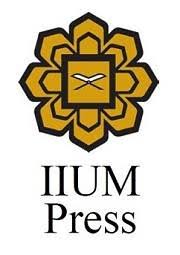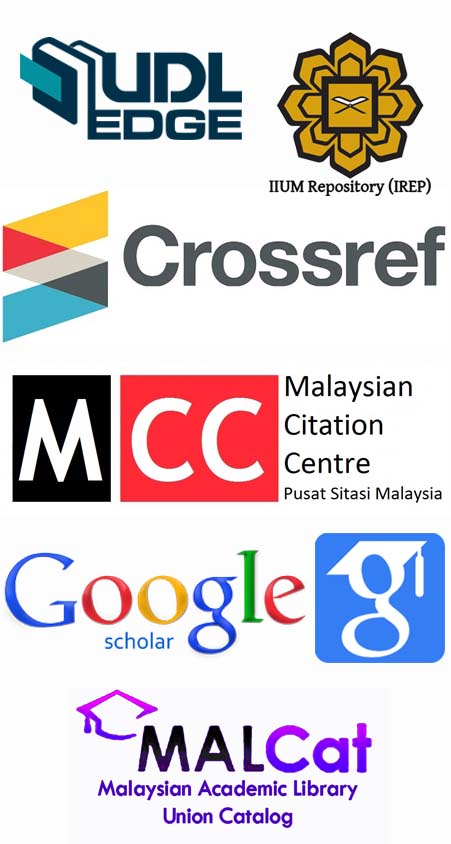HALAL INDUSTRY CERTIFICATION ASPECTS: CONCEPTUAL FRAMEWORK BASED ON THE THEMATIC STUDY OF THE QUR’AN
DOI:
https://doi.org/10.31436/alburhn.v8i1.333Abstract
The article aims to analyze the different aspects of the halal certification process based on the thematic study of the Quran’s verses containing the word halal. The themes are -legislation, the practicality of the legislation, elimination of harm, and positive impact. Based on these themes and principles the conceptual framework is developed and various aspects of the halal certification process are analyzed. For analysis purposes, market leaders in 5 sectors are chosen. The qualitative analysis relied on online reports, company websites, research papers, and webinar proceedings. The study establishes a link between Quranic themes and Shariah principles. From the content analysis, it has been found that the most widely applied theme in all sectors is eliminating impurity; the most overlooked theme is positive impact. Leaders in the food and finance sector have a diversified Shariah board. However, shariah principles need to be incorporated in analyzing the customer demand, especially for processed food and clothing. The research is expected to assist the policymakers and other stakeholders in establishing a framework for halal certification that would maintain the label's integrity. The thematic study of the Quran highlights the necessity to take initiatives to reduce the knowledge gap, develop tools to assess customer demand, and the impact of consuming halal goods and services from a Shariah perspective. Such initiatives would assist in developing more halal products and services and boost economic and social impact.
Downloads
References
Ahmed, Farah. 2023. “Semantic Study of the Word Halal Based on Minor and Supreme Derivation.” ALBURHĀN: JOURNAL of QURʾĀN and SUNNAH STUDIES 7 (1): 58–80.
Alam, Md Kausar, Ab Rahman, Tabash, Mosab I, Oli Ahad Thakur, and Sharif Hosen. 2021. “Shariah Supervisory Boards of Islamic Banks in Bangladesh: Expected Duties and Performed Roles and Functions.” Journal of Islamic Accounting and Business Research 12 (2): 258–75.
Ali, Nadya, and Ben Whitham. 2021. “Racial Capitalism, Islamophobia, and Austerity.” International Political Sociology 15 (2): 190–211.
Alsulami, Salhah, Mukhtiar Baig, Tauseef Ahmad, Nouf Althagafi, Eman Hazzazi, Razan Alsayed, Majd Alghamdi, and Thikra Almohammadi. 2023. “Obesity Prevalence, Physical Activity, and Dietary Practices among Adults in Saudi Arabia.” Frontiers in Public Health 11: 1124051.
Amin, Mawlâna. 1983. “TadabbureQuran.” Faran Foundation Lahore 1: 245.
Asa, Rokshana Shirin. 2019. “An Overview of the Developments of Halal Certification Laws in Malaysia, Singapore, Brunei and Indonesia.” Jurnal Syariah 27 (1): 173–200.
Azam, and Moha Asri Abdullah. 2020. “Global Halal Industry: Realities and Opportunities.” IJIBE (International Journal of Islamic Business Ethics) 5 (1): 47–59.
Azam, Muhammad, Muhammed Usman Khalid, and Syeda Zinnaira Zia. 2019. “Board Diversity and Corporate Social Responsibility: The Moderating Role of Shariah Compliance.” Corporate Governance: The International Journal of Business in Society 19 (6): 1274–88.
Badawi, Nesrine. 2009. “Introduction to Islamic Law.” Cambridge: Harvard University.
Belwal, Rakesh, and Al Maqbali. 2019. “A Study of Customers’ Perception of Islamic Banking in Oman.” Journal of Islamic Marketing 10 (1): 150–67.
De Soysa, Indra. 2019. “Is Islam Compatible with Freemarket Capitalism? An Empirical Analysis, 1970–2010.” Politics and Religion 12 (2): 227–56.
Elasrag, Hussein. 2022. “Halal Industry: Challenges and Opportunities.”
Fauzi, Muchammad, Amalia Nur Azizah, and Lena Nurfauziyah. 2019. “The Concept of Ifta’in Establishing Halal Law (Study of Usul Fiqh on Legal Determination Methods).” Journal of Digital Marketing and Halal Industry 1 (1): 83–92.
“Global Halal Ecosystem Assessment - Highlights.” n.d. Www.isdb.org. Accessed December 22, 2023. https://www.isdb.org/coekl/global-halal-ecosystem-assessment-highlights.
“ Halal Industry in OIC Countries Challenges and Prospects.” n.d. https://sesricdiag.blob.core.windows.net/sesric-site-blob/files/article/794.pdf.
“ Halal Initiatives Safe, Hygienic and Trusted the World Over.” n.d. Duopharmabiotech.com. https://duopharmabiotech.com/halal-initiatives/.
Han, Heesup, Kiattipoom Kiatkawsin, and Wansoo Kim. 2019. “Traveler Loyalty and Its Antecedents in the Hotel Industry: Impact of Continuance Commitment.” International Journal of Contemporary Hospitality Management 31 (1): 474–95.
Hassan, Yusuf, and Anirban Sengupta. 2019. “India–an Untapped Market for Halal Products.” Journal of Islamic Marketing 10 (3): 981–1002.
Husain, Altaf. 2017. “Islam in the 21st Century: Challenges and Opportunities for Social Work with Muslims.” Journal of Religion & Spirituality in Social Work: Social Thought 36 (12): 1–5.
“Islamic Clothing Fashion | Muslim Fashion Clothing.” n.d. Www.fibre2fashion.com. Accessed December 22, 2023. https://www.fibre2fashion.com/industry-article/7298/muslim-fashion-an-overwhelming-incarnation#:~:text=Indonesia%20is%20the%20biggest%20exporter.
Jalalian, Masoud, Mohammad Sharif Malekzadeh, and Mirabi, Vahid Reza. 2021. “Development of Halal Tourism Development Model with Sustainable Development Approach (Case Study: Kish Island).” Geography (Regional Planning) 11 (1): 187–201.
Junos, Sutina. 2012. “The Halal Product Acceptance Model for the Religious Society/Nazahah Abd. Rahim, Sutina Junos.”
Kamali, Mohammad Hashim. 2021. Shariah and the Halal Industry. Oxford University Press.
Khan, Nasreen, Abdullah Sarwar, and Booi Chen Tan. 2021. “Determinants of Purchase Intention of Halal Cosmetic Products among Generation Y Consumers.” Journal of Islamic Marketing 12 (8): 1461–76.
Lee, Amanda J, Katherine Cullerton, and LisaMaree Herron. 2021. “Achieving Food System Transformation: Insights from a Retrospective Review of Nutrition Policy (In) Action in Highincome Countries.” International Journal of Health Policy and Management 10 (Special Issue on Political Economy of Food Systems): 766–83.
“Major Exporters of Halal Foods Worldwide, 2019.” n.d. Statista. https://www.statista.com/statistics/785151/top-exporters-of-halal-food-global/.
“METHOD of CERTIFICATION of HALAL and NON-HALAL RESTAURANTS (Regulation of Governor of Jakarta Capital City of Special Provincial Region Number.” 2013. https://faolex.fao.org/docs/pdf/ins139270.pdf.
Mohammed, Noor. 1988. “Principles of Islamic Contract Law.” Journal of Law and Religion 6 (1): 115–30.
“News & Highlights | Maybank Islamic.” n.d. Www.maybank.com. Accessed December 22, 2023. https://www.maybank.com/islamic/en/newsroom/2023/news2023.page.
Downloads
Published
How to Cite
Issue
Section
License
In general, reusing or reproducing substantial portions of al-Burhān content requires permission. This includes the use of text, figures, tables, multimedia content, and any other material published in any issues of al-Burhān Journal of Qur'an and Sunnah Studies. For some instances, al-Burhān may make its content freely viewable; however, such material may require permission for reuse. To seek permission, please contact the editorial.









